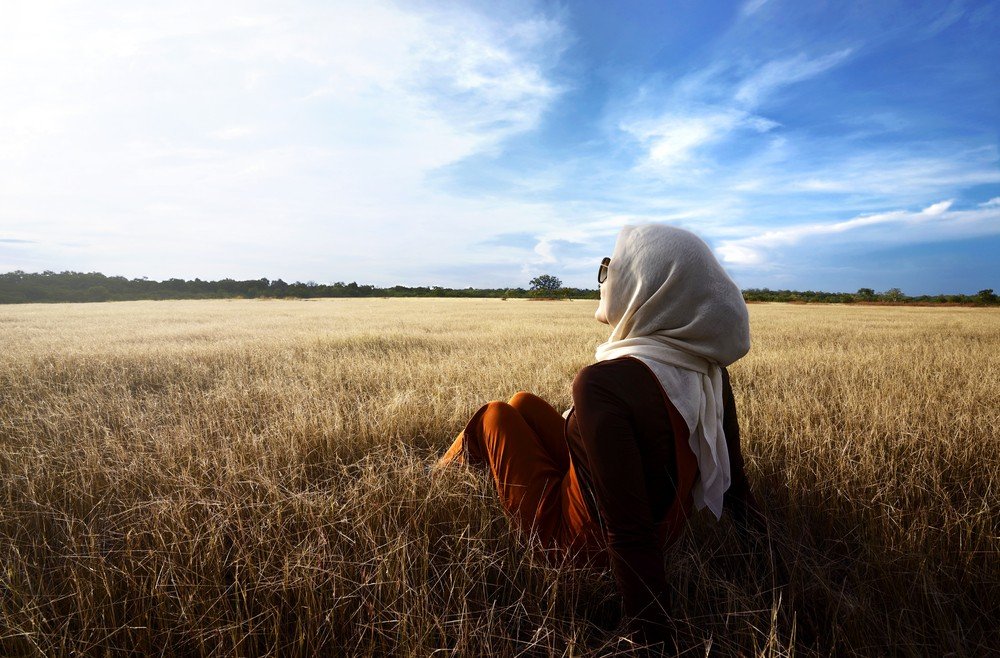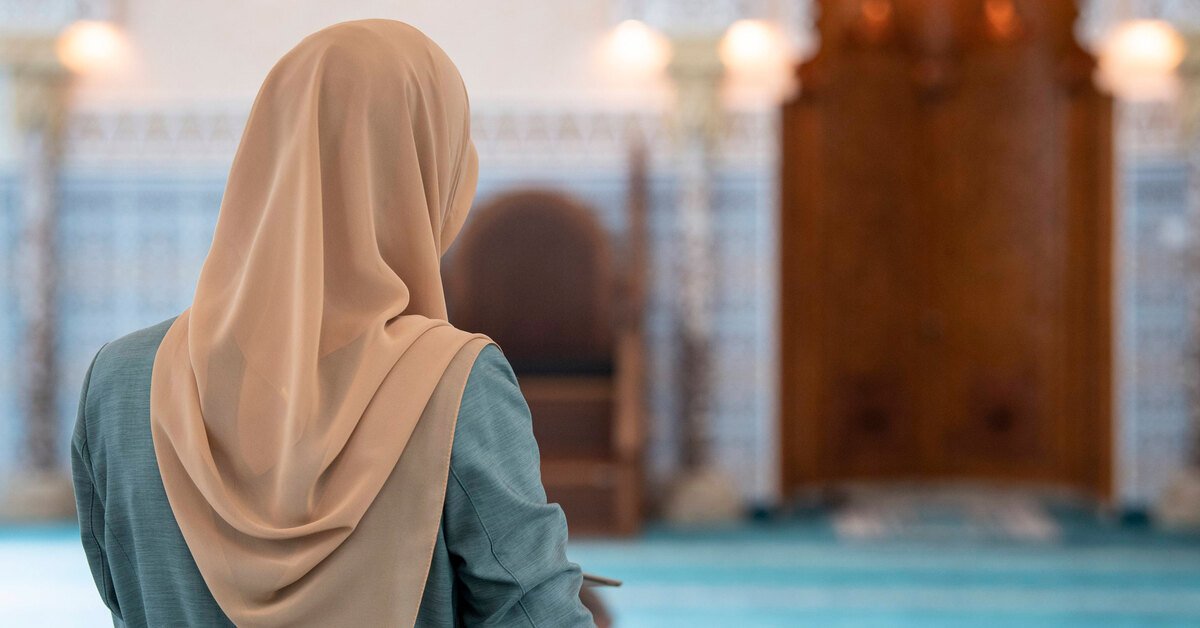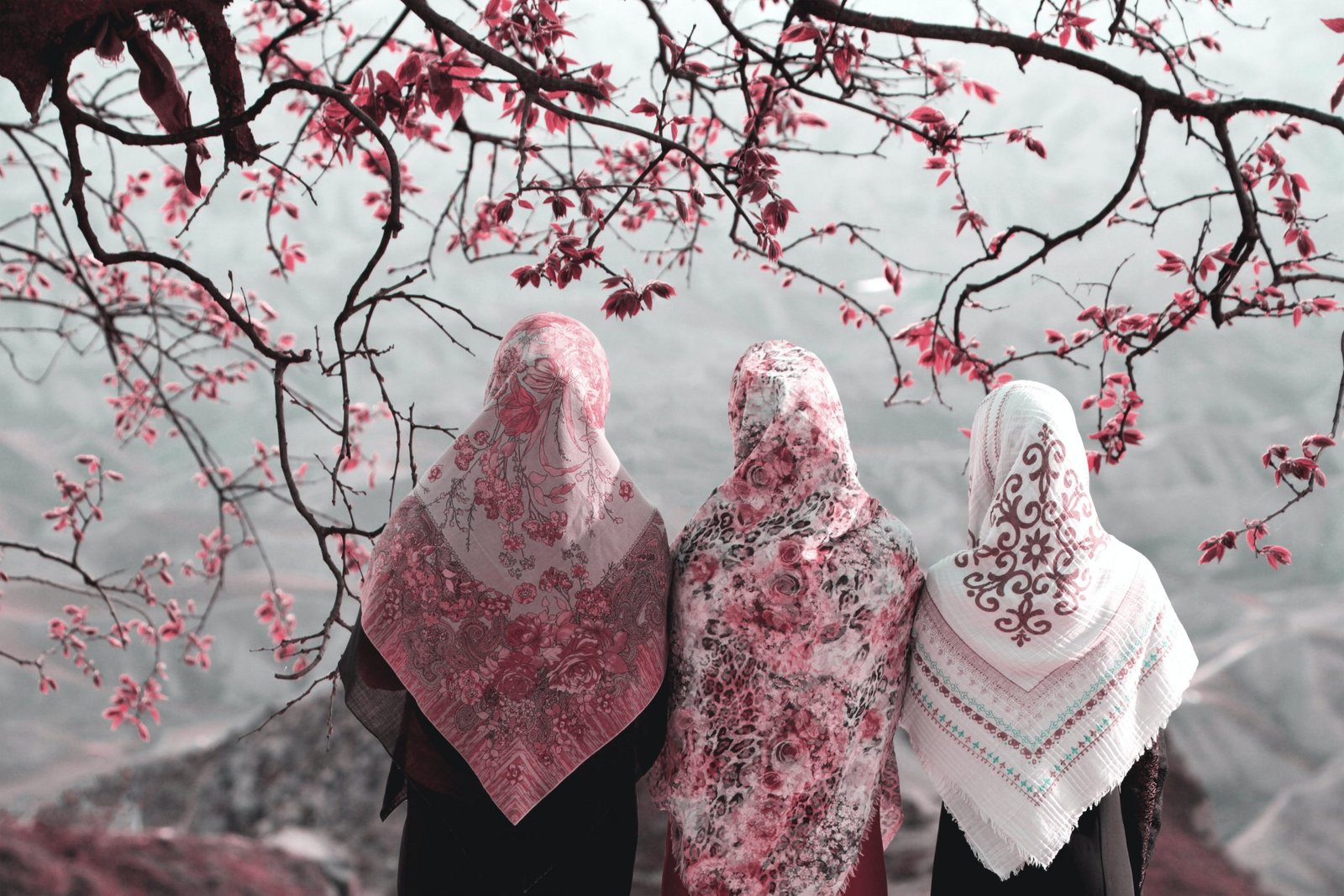Many Muslim women, especially those new to Islam or foreign sisters, often wonder about the concept of hijab. Questions like “why do islam wear hijab?” and whether it is obligatory or not, and the reasons for wearing it, frequently arise, all these questions will be answered in this article.
What is a hijab?

The hijab is a religious covering worn by Muslim women that serves to maintain modesty and privacy, It is rooted in the Quranic injunction for women to “draw their cloaks around them” (Quran 33:59) when in the presence of men who are not close family members.
The word “hijab” literally means “barrier” or “partition,” signifying the separation between the public and private spheres.
The hijab has been an integral part of Islamic dress since the 7th century when the religion first emerged.
It is seen as a way for women to uphold their dignity, honor, and respect within their communities.
The specific styles and interpretations of the hijab can vary across different Muslim cultures and traditions.
Read about: Rules of Wearing a Hijab: A Comprehensive Guide
Why do Islam wear hijab?
why do Islam wear hijab? The hijab is one of the obligations that God Almighty has commanded in the Quran, and He did not make that without wisdom and goodness, In the hijab there is chastity and purity, and it is the emblem of modesty for women. Women’s entire body is a temptation for others, whether men or women, so the hijab preserves and protects them from temptation and from others. It is a protection and preservation of their beauty. It also protects the girl’s hair from external factors that affect it, such as air, heat, and fumes, among other things. It also represents a sense of security for many Muslim women, and they feel freer when wearing it, in modest dress and movement, which allows them to interact with ease in the society in which they live.
Is it necessary to wear hijab in Islam?

In Islam, the hijab is considered a fundamental aspect of modesty and piety for Muslim women, The necessity of wearing the hijab is grounded in religious texts, specifically the Quran and Hadith. The Quran in Surah An-Nur (24:31) and Surah Al-Ahzab (33:59) instructs believing women to draw their veils over their bodies and not display their beauty except to their immediate family and certain others.
This directive is interpreted by many scholars as an obligation for Muslim women to cover their hair, neck, and chest to preserve modesty, The Hadith also provide numerous instances where the Prophet Muhammad (peace be upon him) emphasised the importance of modest dressing for women.
However, the interpretation and implementation of these texts can vary widely among different cultures and communities, Some Muslim scholars and communities view the hijab as mandatory, while others see it as a recommended but not obligatory act. There is also a significant emphasis on the intention behind wearing the hijab; it is meant to be an expression of faith and devotion rather than a mere cultural practice.
In addition to religious directives, the hijab serves as a symbol of identity and empowerment for many Muslim women, It is a visible marker of their faith and can foster a sense of solidarity and belonging within the Muslim community, For some, it is also a form of resistance against societal pressures to conform to specific beauty standards.
On the other hand, some Muslim women choose not to wear the hijab for various personal, social, or cultural reasons. They may feel that modesty can be maintained without a headscarf or that their circumstances do not align with wearing it. It is important to note that while the hijab is a significant practice, it is not the sole determinant of a woman’s faith or piety.
Read about:
Punishment for not wearing hijab in quran
There is no clear punishment mentioned in the Quran for not wearing the hijab, The hijab is a religious obligation that Allah has prescribed for every Muslim woman to protect her and for her benefit. Allah has commanded women not to display their adornments to non-mahram (marriageable) men, as mentioned in Surah An-Nur, and they should only display their adornments to their husbands. This is to preserve her chastity, and purity, and provide her with peace of mind. Not wearing the hijab indicates a lack of obedience to Allah’s commands and reflects a weak faith, as it shows a spiritual state that is distant from Allah and that is why do islam wear hijab.
Read about: Is Allah Omnipresent?
Why did prophet muhammad marry aisha?
is it important to wear hijab in Islam?

The matter in the verse came directly with lowering the gaze and guarding the private parts and concealing the adornment, and from concealing the adornment is the completion of the Muslim women of their veil by covering the bosoms. The veil is the head cover, and it is the traditional dress of Arab women before Islam. Still, it did not cover the neck and chest, so God commanded the Muslim women clearly to determine the legal veil to be the head cover with complete covering of the neck and chest.
The Almighty says: “And as for women past child-bearing age who have no hope of marriage, it is no sin for them if they discard their (outer) clothing in such a way as not to show adornment. But they should remain modest. And Allah is All-Hearing, All-Knowing.”[3] The evidence in this verse is the lifting of the sin from the elderly women who men do not desire, and this is evidence at the same time of the obligation of covering for those who are not elderly, and although God has allowed them that, He has pointed to the virtue of chastity and covering.
The Almighty says: “O Prophet! Tell your wives and your daughters and the women of the believers to draw their cloaks close to them. That is better that they may be recognized and not be troubled. And ever is Allah Forgiving and Merciful.”[4]
Conclusion about why do islam wear hijab
the hijab is an integral part of Islamic tradition, symbolising modesty, faith, and identity for many Muslim women. Its significance varies among individuals and communities, reflecting personal and cultural interpretations of religious teachings. Ultimately, the question of why do Islam wear hijab underscores a blend of spiritual commitment and personal choice that defines this practice in the Islamic faith.
Read about:
- Do You Have to Wear Hijab When Reading Quran?
- Traditional Islamic Bridal Dresses with Hijab
- Best Hijab Quotes Islam
- Hijab in islam quotes
why do islam wear hijab FAQs
What does Allah say about wearing hijab?
Allah addresses the concept of modesty and wearing the hijab in the Quran, specifically in Surah An-Nur (24:31) and Surah Al-Ahzab (33:59). These verses instruct women to cover their adornments and draw their veils over their bodies as a means of modesty. The guidance is meant to uphold dignity and protect from unwanted attention. Why do Islam wear hijab? These verses highlight the religious basis for this practice.
Does wearing hijab cause hair loss?
Wearing the hijab itself is not directly linked to hair loss. However, if the hijab is worn tightly or if it is made from materials that cause excessive friction or irritation, it could potentially affect hair health. It is important to ensure that the hijab is comfortably fitted and made from breathable fabrics to maintain healthy hair. Why do Islam wear hijab? Understanding this practice helps address concerns related to its impact on health.
What does Islam say about wearing hijab?
Islam promotes modesty for both men and women, and the hijab is a manifestation of this principle. It is seen as a way to fulfil religious obligations and express personal commitment to Islamic values. The practice of wearing the hijab in Islam is meant to foster modesty and maintain privacy. Why do Islam wear hijab? This reflects the broader principles of modesty and respect within the faith.
Why do Islam wear hijab?
The hijab is worn as an expression of modesty and faith in Islam. It is intended to align with Islamic teachings on maintaining dignity and privacy. The practice of wearing the hijab can also serve as a personal and spiritual choice that reflects a woman’s devotion to her beliefs. Why do Islam wear hijab? This question encapsulates the reasons behind the practice and its significance.
How important is hijab in Islam?
The hijab holds significant importance in Islam as it represents a commitment to modesty and adherence to religious guidelines, For many Muslim women, it is a visible sign of their faith and devotion. Its importance in Islam is seen both in religious texts and as a personal symbol of respect for Islamic values. Why do Islam wear hijab? This question underscores the central role of the hijab in expressing Islamic principles.
Why does Islam wear hijab?
Islam encourages wearing the hijab as a way to embody the principles of modesty and respect outlined in religious teachings. It is considered a means to maintain a respectful appearance and to align personal dress with the values taught in the Quran and Hadith. Why do Islam wear hijab? This question highlights the fundamental reasons for the practice and its religious significance.
Read about: Top 5 Islam Rules on Marriage Every Muslim Should Know
5 Things To Recite Before Sleeping : Your Ultimate Guide
- Read about: Free online Islamic courses with certificates
- Read about: Can a non muslim pray to Allah?
- When Can A Woman Take Off Her Hijab?